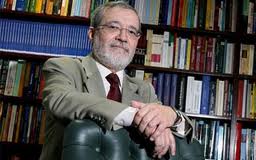Three questions for Everardo Maciel
A member of the ETCO Advisory Council, former Finance Secretary Everardo Maciel reveals, in this interview, his views on the Brazilian tax system
1. To what extent does the complexity of the Brazilian tax system favor tax evasion and perpetuate unfair competition in the business environment in Brazil?
The tax complexity openly favors administrative corruption, tax evasion and avoidance and, consequently, unfair competition. However, this is not a Brazilian phenomenon. Klaus Tipke, the great German tax lawyer, said that the demand for simplification had become universal. It seems that tax systems, in order to reproduce increasingly sophisticated economic and social relations, naturally tend to be complex.
2. In a recent public hearing, you stated that you consider the simplification of the Brazilian tax system to be valid as long as the country's peculiarities are taken into account. What are these peculiarities and how can they be considered in the process of improving the tax system in Brazil? Brazil?
I was referring to the nature of the tax system, which is associated with a decadent budget process and stigmatized by odd sectoral links and an inconsistent and confused fiscal federalism. Budget and fiscal federalism are themes that revolve around political power, being resistant to changes based on rationality. I am a supporter of tax simplification, which, however, does not give up a realistic view.
3. One of his frequent statements is that the country must avoid sudden tax changes and that there is no ideal tax reform for Brazil. That said, what proposals do you consider to be priority and feasible and, furthermore, by what means could they be implemented?
Nowhere in the world is there a “tax reform”, because the systems are inherently imperfect, resulting from political tensions. Abrupt and comprehensive changes are only feasible, although not necessarily desirable, in conditions of institutional disruption. I follow continuous changes, focused on specific problems and preferentially forwarded through the infra-constitutional route.




